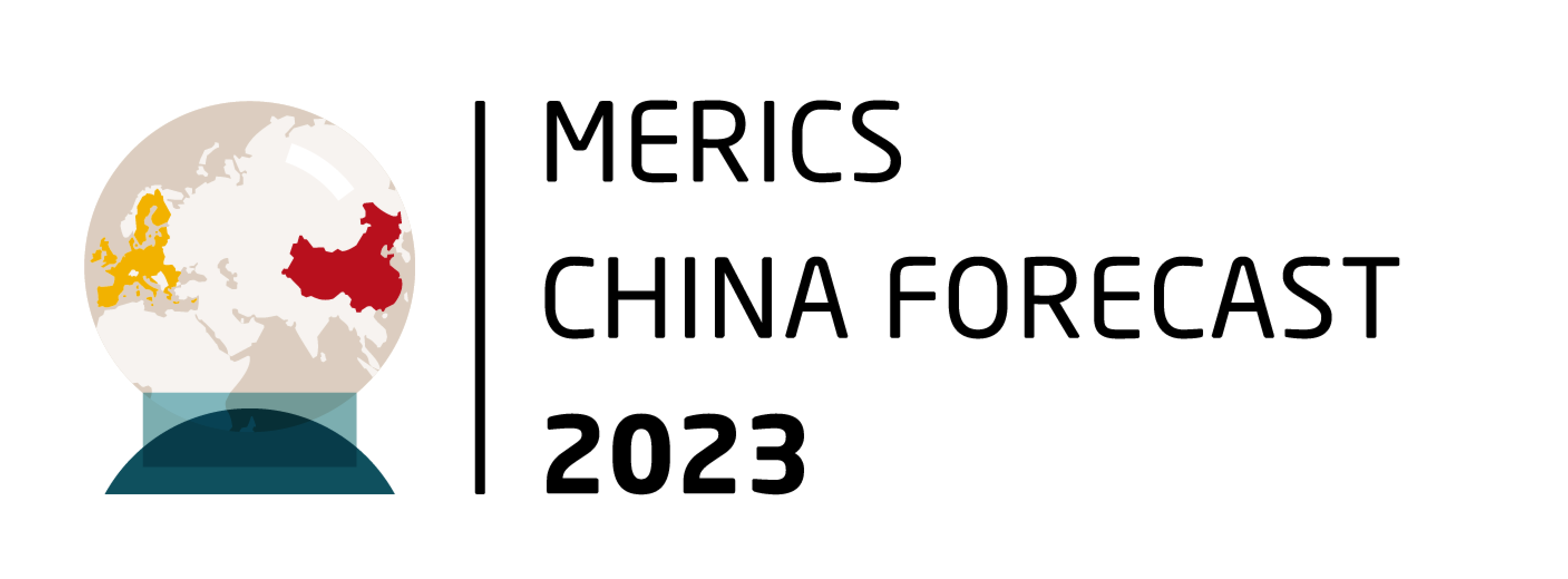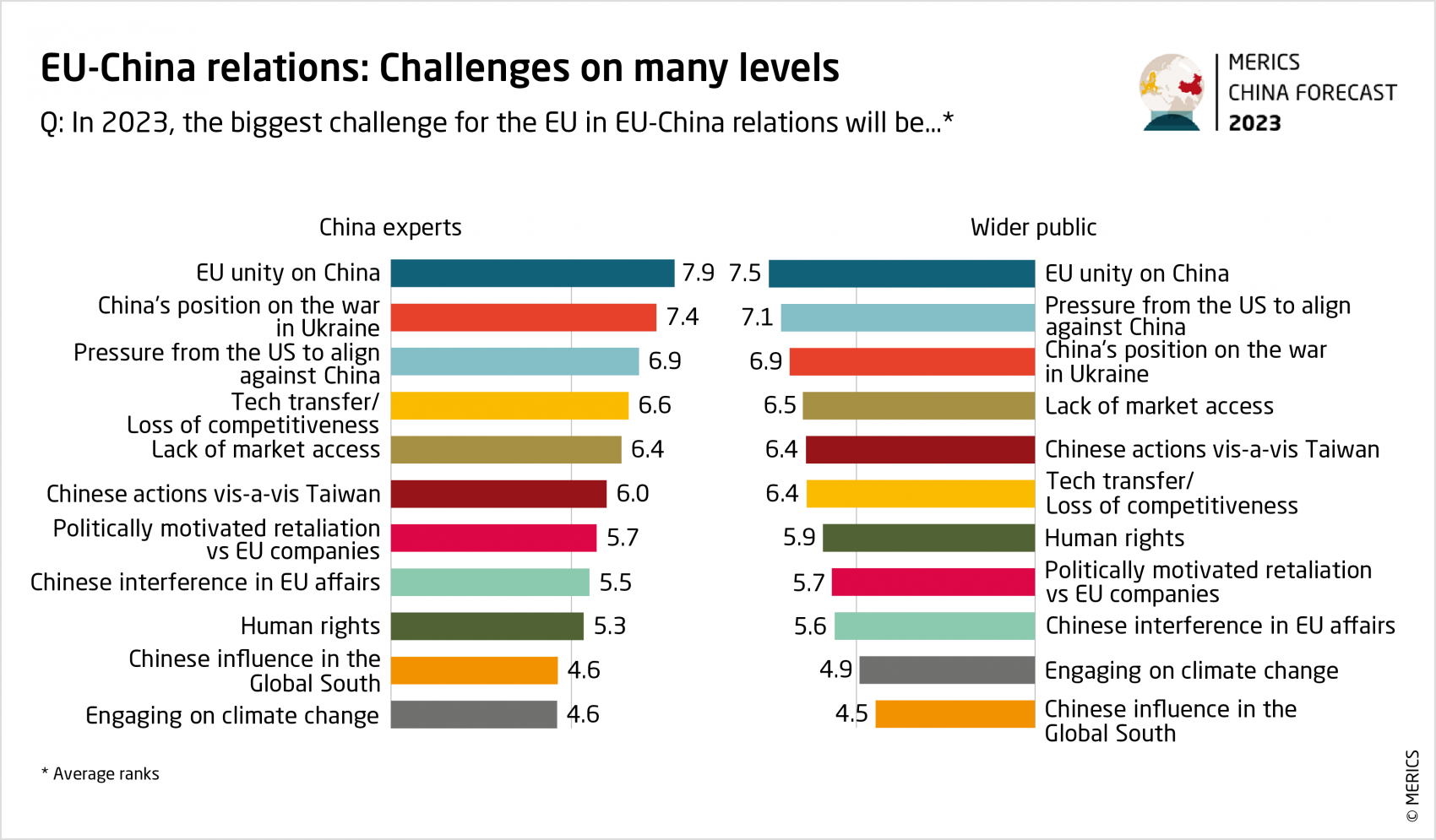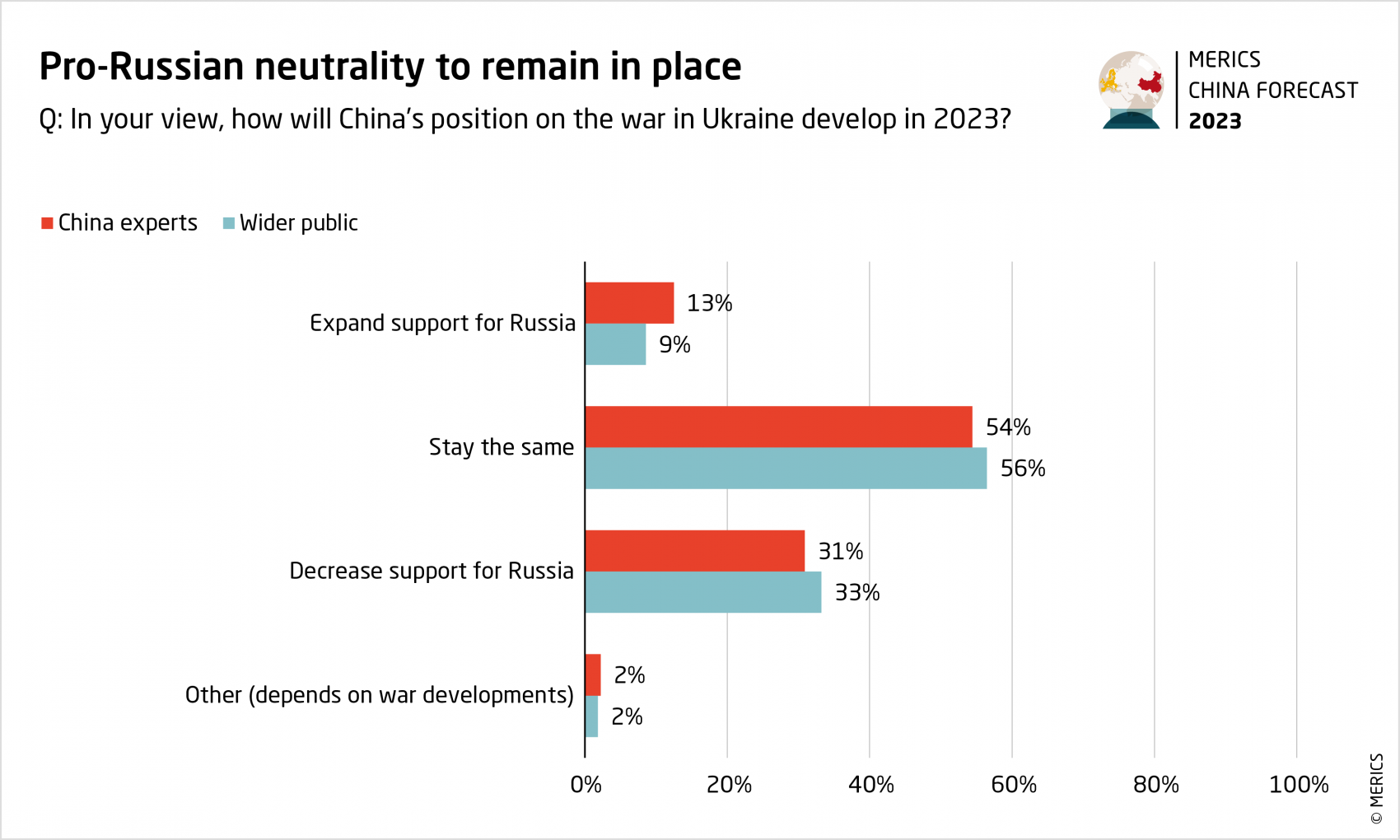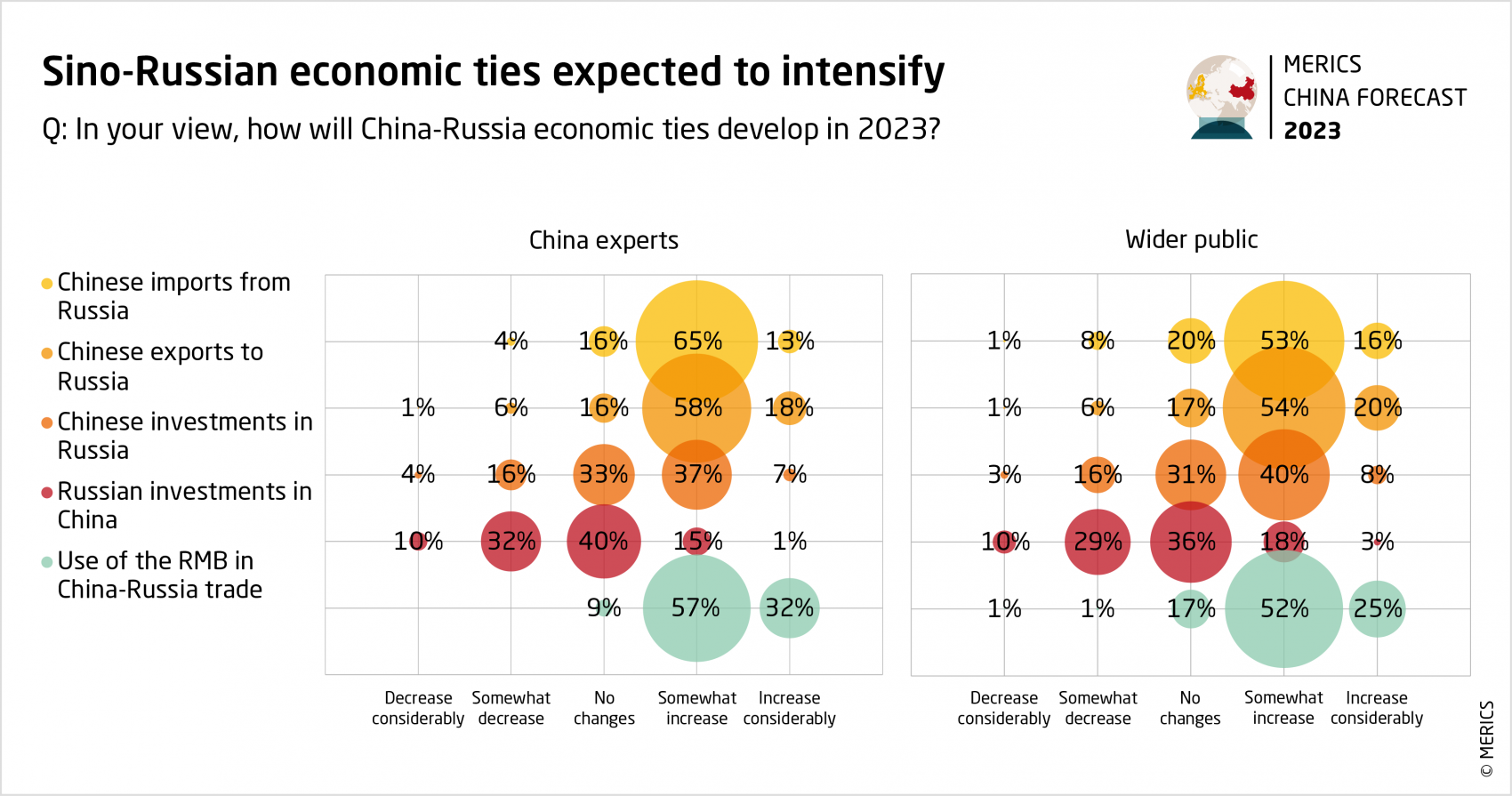

China's precarious path forward – insights from the MERICS China Forecast 2023
Our survey of 880 China watchers suggests the country’s course is most unpredictable – except that it will continue to stand by Moscow and accept EU-China relations fraying.
 Watch the recording of the MERICS China Forecast 2023 online event which took place on January 18, 2023 here.
Watch the recording of the MERICS China Forecast 2023 online event which took place on January 18, 2023 here.
Unbridled power in the hands of Xi Jinping, underlying pressures economic and social, and unpredictable policies in any number of fields – the level of uncertainty about China in the year ahead has never been higher than in this fourth edition of our MERICS China Forecast. We solicited the views of 880 China experts and non-expert members of the public with an interest in the country. Their responses don’t make for optimistic reading.
To get all results of the survey, read or download the PDF.
Last year’s events in China at least still ranged from the surprising to the certain. In October, Xi secured his expected third term as general secretary and packed the Chinese Communist Party’s (CCP) Politburo with loyalists. But then in November, nationwide protests against draconian Covid-19 lockdowns caught the political establishment on the backfoot. And it, in turn, in December surprised everyone by abruptly ending many of its zero-covid measures.
China watchers suggest a possible “pressure cooker” scenario in China
At the start of 2023, the China watchers we surveyed consider the ongoing dynamics of Covid-19, the geopolitical environment and a looming global recession as the top three challenges the country in the (still almost) 12 months ahead. They are seen as additional risks to China’s economic and technological development, with the potential to put greater pressure on Chinese society. Given this, our respondents consider Covid-19 measures, economic stress and social inequality the most likely triggers of renewed public dissent.
At the same time, survey participants foresee an even more Xi-dominated China. They widely expect the economy to see greater state control and China’s leadership to defer to Xi’s vision and ideology, with no room for collective policy consultation or political pragmatism familiar from administrations in the not-too-distant past. Upholding public order and containing protests is considered the most important issue for the CCP this year.
Heightened economic and social risks alongside a more unrelenting, more centralized power structure suggest the possibility of a “pressure cooker” scenario for China. Interrelated risks in the areas of public health, geopolitics and economics raise the likelihood of economic stress. The resulting increase in the potential for protests would be met by a regime with an unconstrained Xi at its pinnacle, a leader with an unprecedented level of personal control.
The responses of our China watchers show that pressure could once again build up in the Chinese system – one that now very clearly only has one hand on the pressure-relief valve. Xi’s seemingly indomitable position has clearly heightened the uncertainty of expert and non-expert respondents about the current Chinese system. One-man rule is seen to lead to policy arbitrariness and unpredictability, akin to December’s zero-Covid policy U-turn.
China watchers expect stable ties with Russia, deteriorating EU relations
Some media commentators have recently argued that China has embarked on a new charm offensive, with Xi, for example, meeting more than 25 heads of state since his re-election. But our MERICS China Forecast participants predominantly foresee China’s relations with the EU and some Western countries deteriorating somewhat. A majority of respondents likewise expects China to maintain its pro-Russian “neutrality” as Moscow continues its war on Ukraine (55%) and for economic ties between China and Russia to deepen further in 2023.
These reservations appear to be influencing long-upbeat views on EU-China economic relations. Those we surveyed expect ties to deteriorate in many fields: 81% of respondents cite conditions for EU citizens working in China, 77% science and technology cooperation, 55% EU investments into China, 46% EU exports to China, 40% Chinese investments into the EU. Then again, Chinese exports to the EU will rise slightly, according to 40% of participants.
Notably, a vast majority of respondents supports EU policy measures to diversify away from China, strengthen inbound-investment screening, increase export controls on key technologies, and place restrictions on science and tech cooperation. Those surveyed consider the EU' top-three challenges to be maintaining EU unity on China, dealing with China’s position on the war in Ukraine, and managing US pressure to align against China.
The MERICS China Forecast 2023 depicts an uncertain and unpredictable China that will maintain its pro-Moscow position as Russia’s war on Ukraine continues and that will deepen economic ties with Russia while EU-China economic relations continue to fray. This looks set to make 2023 a challenging year for the EU as uncertainty and certain surprises test the bloc politically and economically. A tough year for Xi could also become a tough year elsewhere.

The MERICS China Forecast 2023 has received funding from the European Union’s Horizon Europe research and innovation programme under grant agreement number 101061700.
Views and opinions expressed are however those of the author(s) only and do not necessarily reflect those of the European Union. Neither the European Union nor the granting authority can be held responsible for them.





